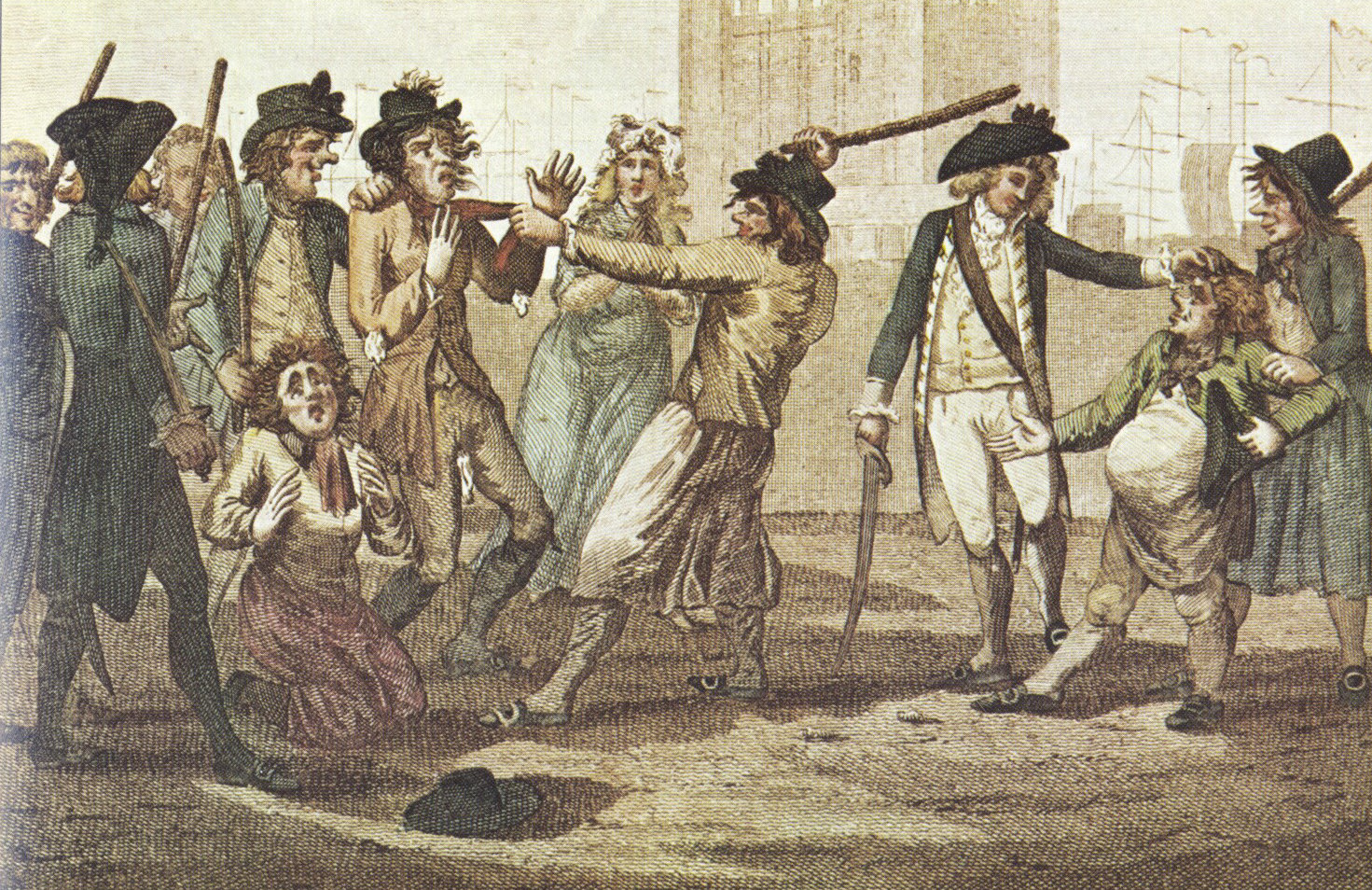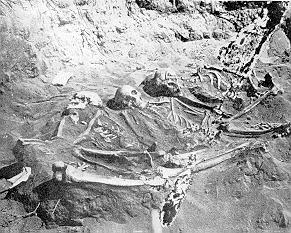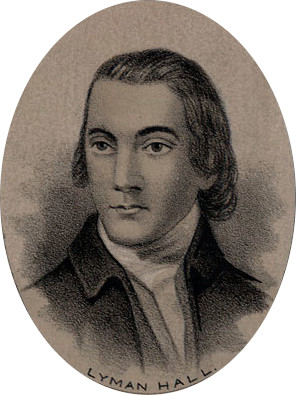|
King's American Regiment
The King's American Regiment, also known as the "Associated Refugees", were a Loyalist regiment during the American Revolutionary War. The King's American Regiment was raised on Staten Island in the Province of New York in December 1776 by Colonel Edmund Fanning as the "Associated Refugees". It served in the 1777 attacks on Fort Clinton and Fort Montgomery, the Southern Campaign 1780–1781, the 1780 Siege of Charleston, the 1781 raids on Newport and Richmond, Virginia, and the 1781 Campaigns in Province of Georgia and East Florida. The regiment was brought into the American Establishment, on March 7, 1781, and renamed the "4th American Regiment of Foot". The regiment later joined the British Regular Army, on December 25, 1782, possibly as the "110th Regiment of Foot", and was disbanded in British Canada British may refer to: Peoples, culture, and language * British people, nationals or natives of the United Kingdom, British Overseas Territories, and Crown Dependencies. ... [...More Info...] [...Related Items...] OR: [Wikipedia] [Google] [Baidu] |
Associators
Associators were members of 17th- and 18th-century volunteer military associations in the British American thirteen colonies and British Colony of Canada. These were more commonly known as Maryland Protestant, Pennsylvania, and American Patriot and British Loyalist colonial militias. But unlike militias, the associator military volunteers were exempt from regular mandatory military service. Other names used to describe associators were " Associations", "Associated", " Refugees", "Volunteers", and " Partisans". The term '' Non-Associators'' was applied to American colonists who refused to support and sign "military association" charters. They were not affiliated with associators, or would choose instead, to pay a fine and suffer possible retaliation. During the American Revolutionary War, some associator units were said to operate more like, or were in fact loose-knit criminal gangs, taking advantage of the disruption of warfare. The present-day U.S. Army 111th Infa ... [...More Info...] [...Related Items...] OR: [Wikipedia] [Google] [Baidu] |
Henry Clinton (1730–1795)
General (United Kingdom), General Sir Henry Clinton, Knight Companion of the Order of the Bath, KB (16 April 1730 – 23 December 1795) was a British Army officer and politician who sat in the House of Commons between 1772 and 1795. He is best known for his service as a general during the American Revolutionary War, American War of Independence. First arriving in Boston in May 1775, from 1778 to 1782 he was the British Commander-in-Chief, North America, Commander-in-Chief in North America. In addition to his military service, due to the influence of his cousin Henry Pelham-Clinton, 2nd Duke of Newcastle, he was a Member of Parliament for many years. Late in life he was named Governor of Gibraltar, but died before assuming the post. Early life Henry Clinton was born on 16 April 1730, to Admiral George Clinton (Royal Navy officer), George Clinton and Anne Carle, the daughter of a general.#Willcox, Willcox, 1964, p. 5. Early histories claimed his birth year as 1738, a date widely ... [...More Info...] [...Related Items...] OR: [Wikipedia] [Google] [Baidu] |
British Canada
British may refer to: Peoples, culture, and language * British people, nationals or natives of the United Kingdom, British Overseas Territories, and Crown Dependencies. ** Britishness, the British identity and common culture * British English, the English language as spoken and written in the United Kingdom or, more broadly, throughout the British Isles * Celtic Britons, an ancient ethno-linguistic group * Brittonic languages, a branch of the Insular Celtic language family (formerly called British) ** Common Brittonic, an ancient language Other uses *''Brit(ish)'', a 2018 memoir by Afua Hirsch *People or things associated with: ** Great Britain, an island ** United Kingdom, a sovereign state ** Kingdom of Great Britain (1707–1800) ** United Kingdom of Great Britain and Ireland (1801–1922) See also * Terminology of the British Isles * Alternative names for the British * English (other) * Britannic (other) * British Isles * Brit (other) * B ... [...More Info...] [...Related Items...] OR: [Wikipedia] [Google] [Baidu] |
British Army During The American Revolutionary War
The British Army during the American Revolutionary War served for eight years in campaigns fought around the globe. Defeat at the Siege of Yorktown to a combined Franco-US force ultimately led to the loss of the Thirteen Colonies in eastern North America, and the concluding Treaty of Paris deprived Britain of many of the gains achieved in the Seven Years' War. However several victories elsewhere meant that much of the remaining British Empire remained intact.Holmes (2002), p. 21 In 1775 the British Army was a volunteer force. The army had suffered from lack of peacetime spending and ineffective recruitment in the decade since the Seven Years' War, circumstances which had left it in a dilapidated state at the outbreak of war in North America.Fortescue (1902), p. 172 To offset this the British government quickly hired contingents of German auxiliaries alongside the regular army units in campaigns from 1776. Limited army impressment was also introduced in England and Scotland to bol ... [...More Info...] [...Related Items...] OR: [Wikipedia] [Google] [Baidu] |
American Establishment (British Army)
The American establishment refers to the amalgamation of several British provincial regiments raised in the American colonies during the American Revolutionary War under a single military establishment within the regular British army. The establishment was created on 2 May 1779 and set at five regiments; the Queens Rangers, Volunteers of Ireland, New York Volunteers, the King's American Regiment and the British Legion, which were numbered 1st, 2nd, 3rd, 4th and 5th American Regiments respectively. In 1782 the 2nd American regiment (Volunteers of Ireland) was placed on the Irish establishment as the 105th foot, whilst 4th and 5th American regiments were placed on the British establishment. The remaining two regiments were disbanded in 1783. The creation of an army establishment in America followed the British tradition which existed in Ireland and Britain and gave the chosen American regiments nominally equal status to regular British units. In doing so the government hoped to enco ... [...More Info...] [...Related Items...] OR: [Wikipedia] [Google] [Baidu] |
Province Of New York
The Province of New York (1664–1776) was a British proprietary colony and later royal colony on the northeast coast of North America. As one of the Middle Colonies, New York achieved independence and worked with the others to found the United States. In 1664, the Dutch Province of New Netherland in America was awarded by Charles II of England to his brother James, Duke of York. James raised a fleet to take it from the Dutch and the Governor surrendered to the English fleet without recognition from the Dutch West Indies Company that had authority over it. The province was renamed for the Duke of York, as its proprietor. England seized ''de facto'' control of the colony from the Dutch in 1664, and was given ''de jure'' sovereign control in 1667 in the Treaty of Breda and again in the Treaty of Westminster (1674). It was not until 1674 that English common law was applied in the colony. The colony was one of the Middle Colonies, and ruled at first directly from England. Wh ... [...More Info...] [...Related Items...] OR: [Wikipedia] [Google] [Baidu] |
Staten Island
Staten Island ( ) is a borough of New York City, coextensive with Richmond County, in the U.S. state of New York. Located in the city's southwest portion, the borough is separated from New Jersey by the Arthur Kill and the Kill Van Kull and from the rest of New York by New York Bay. With a population of 495,747 in the 2020 Census, Staten Island is the least populated borough but the third largest in land area at . A home to the Lenape indigenous people, the island was settled by Dutch colonists in the 17th century. It was one of the 12 original counties of New York state. Staten Island was consolidated with New York City in 1898. It was formally known as the Borough of Richmond until 1975, when its name was changed to Borough of Staten Island. Staten Island has sometimes been called "the forgotten borough" by inhabitants who feel neglected by the city government. The North Shore—especially the neighborhoods of St. George, Tompkinsville, Clifton, and Stapleton—i ... [...More Info...] [...Related Items...] OR: [Wikipedia] [Google] [Baidu] |
Loyalist (American Revolution)
Loyalists were colonists in the Thirteen Colonies who remained loyal to the British Crown during the American Revolutionary War, often referred to as Tories, Royalists or King's Men at the time. They were opposed by the Patriots, who supported the revolution, and called them "persons inimical to the liberties of America." Prominent Loyalists repeatedly assured the British government that many thousands of them would spring to arms and fight for the crown. The British government acted in expectation of that, especially in the southern campaigns in 1780–81. Britain was able to effectively protect the people only in areas where they had military control, and in return, the number of military Loyalists was significantly lower than what had been expected. Due to the conflicting political views, loyalists were often under suspicion of those in the British military, who did not know whom they could fully trust in such a conflicted situation; they were often looked down upon. Pat ... [...More Info...] [...Related Items...] OR: [Wikipedia] [Google] [Baidu] |
Edmund Fanning (colonial Administrator)
Edmund Fanning (April 24, 1739 – February 28, 1818) was an American-born colonial administrator and military officer. Born in New York, he became a lawyer and politician in North Carolina in the 1760s. He first came to fame as the focus of hatred of the Regulators, and led anti-Regulator militia in the War of the Regulation. When the American Revolutionary War broke out, he was driven from his home in New York, and joined the British Army, recruiting other Loyalists. He served during campaigns in New England and the South. At the end of the war in 1783 he became a United Empire Loyalist, settling in Nova Scotia. Fanning was appointed lieutenant governor of Nova Scotia not long after his arrival, and helped oversee the resettlement of other Loyalist refugees in the province. In 1786 he was appointed lieutenant governor of Saint John's Island, which was renamed Prince Edward Island during his tenure. He served in that post until 1813. He retired to London, where he di ... [...More Info...] [...Related Items...] OR: [Wikipedia] [Google] [Baidu] |
East Florida
East Florida ( es, Florida Oriental) was a colony of Great Britain from 1763 to 1783 and a province of Spanish Florida from 1783 to 1821. Great Britain gained control of the long-established Spanish colony of ''La Florida'' in 1763 as part of the treaty ending the French and Indian War (as the Seven Years' War was called in North America). Deciding that the territory was too large to administer as a single unit, Britain divided Florida into two colonies separated by the Apalachicola River: East Florida with its capital in St. Augustine and West Florida with its capital in Pensacola. East Florida was much larger and comprised the bulk of the former Spanish territory of Florida and most of the current state of Florida. It had also been the most populated region of Spanish Florida, but before control was transferred to Britain, most residents – including virtually everyone in St. Augustine – left the territory, with most migrating to Cuba. Britain tried to attract settlers to ... [...More Info...] [...Related Items...] OR: [Wikipedia] [Google] [Baidu] |
Auxiliaries
Auxiliaries are support personnel that assist the military or police but are organised differently from regular forces. Auxiliary may be military volunteers undertaking support functions or performing certain duties such as garrison troops, usually on a part-time basis. Unlike a military reserve force, an auxiliary force does not necessarily have the same degree of training or ranking structure as regular soldiers, and it may or may not be integrated into a fighting force. Some auxiliaries, however, are militias composed of former active duty military personnel and actually have better training and combat experience than their regular counterparts. Historically, the designation ''auxiliary'' has also been given to foreign or allied troops in the service of a nation at war, most famously the eponymous ''Auxilia'' serving the Roman Empire. In the context of colonial troops, locally-recruited irregulars were often described as auxiliaries. Historical usage Roman auxiliaries ... [...More Info...] [...Related Items...] OR: [Wikipedia] [Google] [Baidu] |
Georgia In The American Revolution
The Province (and later State) of Georgia was a significant battleground in the American Revolution. Its population was at first divided about exactly how to respond to revolutionary activities and heightened tensions in other provinces. When violence broke out in 1775, radical Patriots (also known as Whigs) took control of the provincial government, and drove many Loyalists out of the province. Georgia also served as the staging ground for several important raids into British-controlled Florida. Beginning of the revolution Though Georgians opposed British trade regulations, many hesitated to join the revolutionary movement that emerged in the American colonies in the early 1770s and resulted in the American Revolutionary War (1775–83). The colony had prospered under royal rule, and many Georgians thought that they needed the protection of British troops against a possible Indian attack. Georgia did not send representatives to the First Continental Congress that met in Phila ... [...More Info...] [...Related Items...] OR: [Wikipedia] [Google] [Baidu] |







